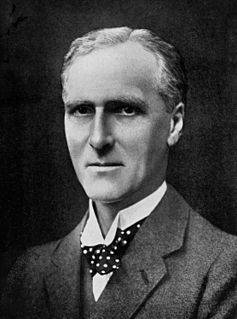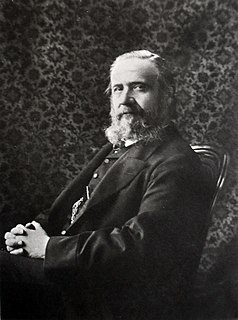A Quote by Stephen Jay Gould
Our creationist detractors charge that evolution is an unproved and unprovable charade — a secular religion masquerading as science. They claim, above all, that evolution generates no predictions, never exposes itself to test, and therefore stands as dogma rather than disprovable science. This claim is nonsense.
Related Quotes
Evolution is promoted by its practitioners as more than mere science. Evolution is promulgated as an ideology, a secular religion - a full-fledged alternative to Christianity, with meaning and morality. I am an ardent evolutionist and an ex-Christian, but I must admit that in this one complaint - ...and Mr. Gish is but one of many to make it - the literalists are absolutely right. Evolution is a religion. This was true of evolution in the beginning, and it is true of evolution today.
Science is the key to our future, and if you don’t believe in science, then you’re holding everybody back. And it’s fine if you as an adult want to run around pretending or claiming that you don’t believe in evolution, but if we educate a generation of people who don’t believe in science, that’s a recipe for disaster. We talk about the Internet. That comes from science. Weather forecasting. That comes from science. The main idea in all of biology is evolution. To not teach it to our young people is wrong.
The fact of evolution is the backbone of biology, and biology is thus in the peculiar position of being a science founded on an unproved theory -is it then a science or a faith? Belief in the theory of evolution is thus exactly parallel to belief in special creation - both are concepts which believers know to be true but neither, up to the present, has been capable of proof.
To claim that science and religion pose different questions to the world is not to suggest that if the bones of Jesus were discovered in Palestine, the pope should get himself down to the dole queue as fast as possible. It is rather to claim that while faith, rather like love, must involve factual knowledge, it is not reducible to it.
We see not only thought as participating in evolution as an anomaly or as an epiphenomenon; but evolution as so reducible to and identifiable with a progress towards thought that the movement of our souls expresses and measures the very stages of progress of evolution itself. Man discovers that he is nothing else than evolution become conscious of itself.
Socrates claimed famously that one never loses by doing the right thing. Stephen Post and his contributors claim, a little less boldly, that at least the generous will, probably, stay healthy—and, improving on Socrates, they support this claim with careful empirical science, impressive for its comprehensive detail. Here ethics and religion join science and enjoin us to be more caring and healthy. A seminal work, with an urgent message.
Evolution is one of the most powerful and important ideas ever developed in the history of science. Every question it raises leads to new answers, new discoveries, and new smarter questions. The science of evolution is as expansive as nature itself. It is also the most meaningful creation story that humans have ever found.
The remarkable insights that science affords us into the intelligible workings of the world cry out for an explanation more profound than that which itself can provide. Religion, if it is to take seriously its claim that the world is the creation of god, must be humble enough to learn from science what that world is actually like. The dialogue between them can only be mutually enriching.
Even though their arguments did not invoke religion, I think we all know what's behind these arguments. They're trying to protect religious beliefs from contradiction by science. They used to do it by prohibiting teachers from teaching evolution at all; then they wanted to teach intelligent design as an alternative theory; now they want the supposed "weaknesses" in evolution pointed out. But it's all the same program - it's all an attempt to let religious ideas determine what is taught in science courses.

































